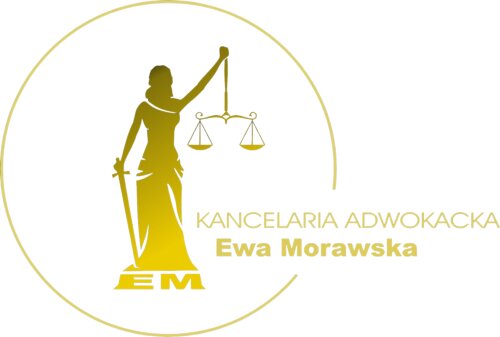Best Inheritance Law Lawyers in Warsaw
Share your needs with us, get contacted by law firms.
Free. Takes 2 min.
List of the best lawyers in Warsaw, Poland
1. About Inheritance Law in Warsaw, Poland
Inheritance law in Poland governs how a deceased person’s estate is transferred to heirs. It covers statutory succession, testamentary dispositions, and the rights of spouses and children. The rules apply across all of Poland, including Warsaw, and are primarily set out in the Civil Code. In Warsaw, as in other cities, probate matters are handled through the district courts or, in simpler cases, through notarial procedures.
The core concepts include acceptance or renunciation of the inheritance, determination of rightful heirs, and the distribution of the estate’s assets. Warsaw residents often deal with real estate transfers, mortgages, and business assets within the city, which can add complexity to the process. Understanding both the substantive rules and the procedural steps helps prevent delays and disputes.
Practical steps typically involve verifying who is an heir, obtaining a certificate of inheritance when needed, and ensuring compliance with tax obligations. For residents of Warsaw, local real estate holdings and multiple heirs residing in different places can complicate title transfers and require coordinated filings with courts or notaries.
“Inheritance matters in Poland are primarily governed by the Civil Code, with procedural rules found in the Code of Civil Procedure.”
Civil Code (Kodeks cywilny) - ISAP provides the official text and amendments related to dziedziczenie (inheritance). This is the foundational source for understanding legal rights of heirs and the mechanics of succession in Poland.
2. Why You May Need a Lawyer
Warsaw residents face concrete situations where legal counsel is essential. Below are real-world scenarios that illustrate when hiring a specialist in Inheritance Law can make a difference.
- You discover a contested will that disinherits a spouse or child. A lawyer helps interpret testament provisions and challenge invalid clauses under Polish law.
- You must establish who the statutory heirs are when there is no will. An attorney can guide you through succession steps and ensure rightful shares are identified and protected.
- You need to obtain a certificate of inheritance (stwierdzenie nabycia spadku). A solicitor can determine whether a court or notary process is appropriate and handle filings efficiently.
- Real estate in Warsaw is part of the estate and must be transferred to heirs. A legal counsel coordinates with notaries and land registry offices to ensure clear title transfer.
- There are disputes among multiple heirs about asset division. A lawyer can negotiate settlements, pursue mediation, or represent you in court if necessary.
- Your inheritance includes foreign assets or heirs living abroad. A Polish attorney helps navigate cross-border issues and applicable foreign laws.
Hiring a lawyer in Warsaw also helps manage timing, costs, and risk. An experienced attorney can assess tax implications for inheritance and provide a clear plan to minimize delays and potential disputes.
3. Local Laws Overview
In Warsaw, the core legal framework for inheritance matters includes national statutes that apply across Poland. Here are 2-3 specific laws or regulations you should know by name, with notes on their scope and recent relevance.
- Kodeks cywilny (Civil Code) - governs foundations of dziedziczenie, testament, and the rights of statutory heirs. It sets out how the estate is divided among heirs and the conditions for valid wills. The Civil Code has been amended many times to adapt to new realities in Poland.
- Kodeks postępowania cywilnego (Code of Civil Procedure) - regulates the process for inheritance cases in courts, including filing for stwierdzenie nabycia spadku and settlement procedures. It provides timelines and procedural steps for probate matters.
- Ustawa o podatku od spadków i darowizn (Tax on Inheritance and Donations Act) - governs tax treatment of inherited assets and gifts. Close relatives often enjoy exemptions or reduced rates, with thresholds and rates updated periodically by the tax authority.
Recent trends include clarifications on the use of notaries in straightforward succession cases and ongoing adjustments to tax exemptions for close relatives. For precise language and current amendments, consult the official sources linked below.
Key sources for the official texts:
- Civil Code and Code of Civil Procedure - ISAP (official text)
- Dziennik Ustaw - official publication of legal acts
- Podatek od spadków i darowizn - official tax information
4. Frequently Asked Questions
What is the basic difference between inheritance and a will in Poland?
A will is a testamentary disposition that determines who receives assets after death. Inheritance includes both testamentary and statutory succession as defined by law.
How do I start a probate process in Warsaw?
Identify whether a court procedure or notarial act is appropriate, collect required documents, and file with the relevant district court or notary. An attorney can coordinate this.
When should I file for acceptance of the inheritance?
You must decide within the legal deadline after learning of the death. In many cases, this is within six months; exceptions apply for minors or several complicating factors.
Where can I obtain a certificate of inheritance in Warsaw?
Certificate of inheritance can be issued by a court or a notary in straightforward cases. A lawyer can determine the best path and handle the filing.
Why might I need a lawyer for a contested will?
A lawyer helps interpret testament provisions, challenge invalid clauses, and represent your interests in negotiation or court proceedings.
Can non-residents have inheritance issues in Warsaw?
Yes. Foreign heirs may face cross-border legal considerations and tax rules. A Warsaw lawyer with cross-border experience can coordinate with foreign jurisdictions.
Should I use a notary for all inheritance matters?
Notaries are suitable for certain straightforward actions, including some notarial acts of succession. More complex disputes typically require court involvement and legal representation.
Do I need to pay inheritance tax in Poland for close relatives?
Close relatives often benefit from exemptions, but tax requirements depend on relationship and value. Check the official tax guidance for current exemptions and rates.
Is the timeline for resolving an estate in Warsaw predictable?
Timelines vary widely. Simple cases may complete in a few months; complex estates with disputes can take years. An attorney can provide a more precise estimate.
How much does it cost to hire a lawyer for inheritance matters in Warsaw?
Costs depend on complexity, anticipated hours, and the lawyer’s rates. Request a written fee estimate and a scope of work before starting.
What is the difference between statutory heirs and testamentary heirs?
Statutory heirs qualify by law, regardless of a will. Testamentary heirs are named by the decedent in a will. Both groups may share the estate under applicable rules.
Do I need to take action if I plan to renounce an inheritance?
Yes. Renunciation must follow legal procedures and timelines to avoid unwanted obligations, such as debts inherited with the estate.
5. Additional Resources
These official resources can clarify rights, duties, and processes related to inheritance matters in Poland and specifically for Warsaw residents.
- Civil Code and related acts - ISAP: Official text of the Civil Code and related statutes. Function: provides authoritative legal definitions and rules for dziedziczenie and testamentary dispositions. ISAP - Civil Code texts
- Dziennik Ustaw - Official Journal: Function: publishes all enacted Polish laws and amendments, including those affecting inheritance law. Dziennik Ustaw
- Podatek od spadków i darowizn - Tax information: Function: provides current rules, exemptions, and thresholds for inheritance tax. Podatek od spadków i darowizn
6. Next Steps
- Define your objective: determine whether you need to validate a will, establish statutory heirs, or transfer property in Warsaw. Time: 1-2 days.
- Gather key documents: death certificate, will (if any), titles to real estate, lists of assets and debts, and beneficiary information. Time: 1-2 weeks.
- Consult a Warsaw inheritance lawyer: choose a solicitor with experience in Polish dziedziczenie and cross-border issues if needed. Time: 1-2 weeks for initial consultations.
- Decide on the procedural path: court probate vs notarial act, based on case complexity and disputes. Time: 1-3 weeks for decision.
- Obtain an initial fee estimate and plan: request a written engagement letter outlining scope and costs. Time: 1 week.
- File the necessary applications: submit stwierdzenie nabycia spadku or other required filings with the court or notary. Time: 4-12 weeks depending on workload.
- Advocate for or negotiate settlements: if disputes arise, pursue mediation or litigation as advised by your attorney. Time: variable, typically 3-12 months.
Lawzana helps you find the best lawyers and law firms in Warsaw through a curated and pre-screened list of qualified legal professionals. Our platform offers rankings and detailed profiles of attorneys and law firms, allowing you to compare based on practice areas, including Inheritance Law, experience, and client feedback.
Each profile includes a description of the firm's areas of practice, client reviews, team members and partners, year of establishment, spoken languages, office locations, contact information, social media presence, and any published articles or resources. Most firms on our platform speak English and are experienced in both local and international legal matters.
Get a quote from top-rated law firms in Warsaw, Poland — quickly, securely, and without unnecessary hassle.
Disclaimer:
The information provided on this page is for general informational purposes only and does not constitute legal advice. While we strive to ensure the accuracy and relevance of the content, legal information may change over time, and interpretations of the law can vary. You should always consult with a qualified legal professional for advice specific to your situation.
We disclaim all liability for actions taken or not taken based on the content of this page. If you believe any information is incorrect or outdated, please contact us, and we will review and update it where appropriate.
















